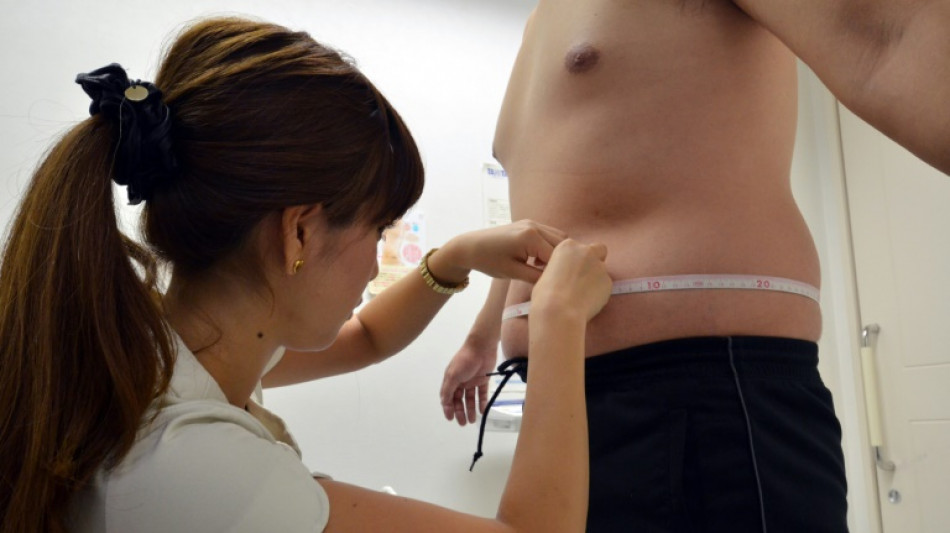
-
 Cricket falls silent across Australia after teenager killed by ball
Cricket falls silent across Australia after teenager killed by ball
-
Vinicius Junior in the clear over Clasico outburst

-
 UK welcomes king's move to strip Andrew of royal titles
UK welcomes king's move to strip Andrew of royal titles
-
Liverpool must snap losing 'habit', says under-fire Slot

-
 Bencic out of Hong Kong last eight as tennis injury list mounts
Bencic out of Hong Kong last eight as tennis injury list mounts
-
Xi invites Canada PM to China in first meet in 8 years
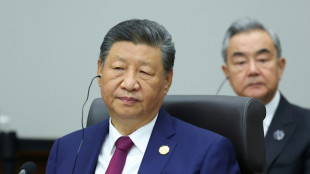
-
 Chinese defence minister seeks 'trust' with US but cautions over Taiwan
Chinese defence minister seeks 'trust' with US but cautions over Taiwan
-
India's Rodrigues beat anxiety and tears to become World Cup star

-
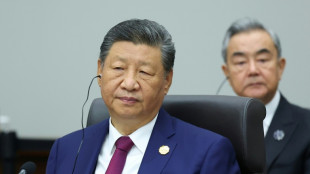 China, Canada leaders hold first formal talks since 2017
China, Canada leaders hold first formal talks since 2017
-
Nvidia to supply 260,000 cutting-edge chips to South Korea

-
 Camels replace cows as Kenya battles drought
Camels replace cows as Kenya battles drought
-
Endangered across west Africa, leopards thrive in I.Coast reserve

-
 Risky gold rush drives young into Ivory Coast nature park
Risky gold rush drives young into Ivory Coast nature park
-
Deadly roads block mothers from care in jihadist-hit Nigeria

-
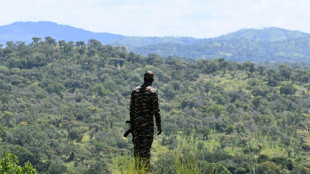 Pillaged I.Coast nature reserve on the mend after crisis decade
Pillaged I.Coast nature reserve on the mend after crisis decade
-
India savours 'greatest day' after Women's World Cup heroics
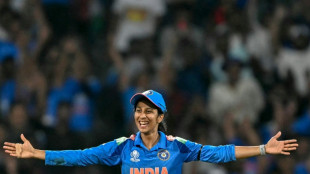
-
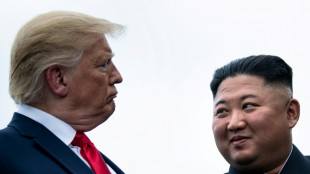 Why emboldened Kim had little need for photo-op with Trump
Why emboldened Kim had little need for photo-op with Trump
-
In the black: the business of mourning Thailand's queen mother

-
 Tributes as death of Australian teenager touches cricket world
Tributes as death of Australian teenager touches cricket world
-
Jackson throws four TD passes as Ravens rout Dolphins
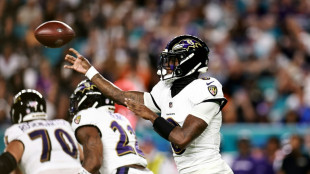
-
 NBA champs Thunder roll past Wizards, Bucks and Spurs win
NBA champs Thunder roll past Wizards, Bucks and Spurs win
-
UK's Andrew in freefall, stripped of queen's protection

-
 Real Madrid and Barcelona aim to shake off Clasico consequences
Real Madrid and Barcelona aim to shake off Clasico consequences
-
Ambitious Paris FC making steady progress after landing in big time

-
 Rebuilt Leverkusen hope to reignite Bundesliga rivalry at Bayern
Rebuilt Leverkusen hope to reignite Bundesliga rivalry at Bayern
-
Xi primed to meet Japan, Canada leaders after Trump summit
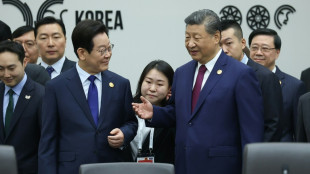
-
 Australia coach Schmidt pleads for Edmed patience ahead of England clash
Australia coach Schmidt pleads for Edmed patience ahead of England clash
-
Liverpool feel pressure to end 'crisis' run, Man City test Bournemouth limits
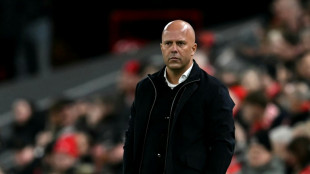
-
 Farrell eyes 'reset' as Ireland-All Blacks ready for 'Battle of Chicago'
Farrell eyes 'reset' as Ireland-All Blacks ready for 'Battle of Chicago'
-
Asia markets mostly up on heels of Apple, Amazon earnings

-
 Jones wants Japan to enhance 2015 legacy against South Africa
Jones wants Japan to enhance 2015 legacy against South Africa
-
Growing rice in the UK 'not so crazy' as climate warms

-
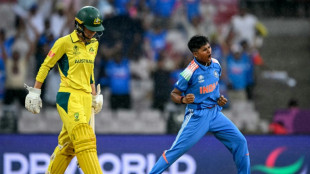 Australia say 'let ourselves down' after India end world domination
Australia say 'let ourselves down' after India end world domination
-
AI cannot make cinema, director Linklater says

-
 After delays, Egypt set for lavish opening of grand museum
After delays, Egypt set for lavish opening of grand museum
-
What we know about the downfall of Andrew, born a UK prince

-
 Desperate Dodgers mull using Ohtani as relief pitcher
Desperate Dodgers mull using Ohtani as relief pitcher
-
Blue Jays vie to close out sputtering Dodgers in World Series

-
 Indigenous Australians celebrate historic state treaty
Indigenous Australians celebrate historic state treaty
-
Caught between Venezuela and US, Trinidad fishermen fear the sea

-
 Latest NFL Chiefs-Bills duel has both chasing division leaders
Latest NFL Chiefs-Bills duel has both chasing division leaders
-
Sierra Leone chases rare repeat in Breeders' Cup Classic

-
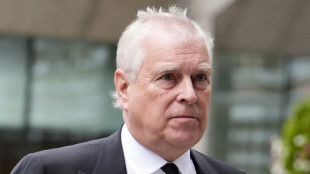 King Charles strips Andrew of royal titles, Windsor home
King Charles strips Andrew of royal titles, Windsor home
-
Sales of 'services' help Apple beat earnings forecasts

-
 Beyond words: '67' crowned 'Word of the Year'
Beyond words: '67' crowned 'Word of the Year'
-
Amazon shares surge as AI boom drives cloud growth

-
 Brazil boasts drop in deforestation ahead of UN climate talks
Brazil boasts drop in deforestation ahead of UN climate talks
-
Russians marking Stalin's repression warn against return to past

-
 Stocks mostly fall as investors digest Trump-Xi talks, earnings
Stocks mostly fall as investors digest Trump-Xi talks, earnings
-
Turkey says Pakistan-Afghanistan talks to resume


Is obesity a disease? Sometimes but not always, experts decide
Do people with obesity have an illness? A panel of global health experts looking at this controversial question announced Wednesday that the definition of obesity should be split into two categories -- and diagnosed using more accurate measurements.
The recommendations hoped to move past the blame and discrimination that often revolve around obesity, which is estimated to affect more than a billion people worldwide.
"The idea of obesity as a disease is at the centre of one of the most controversial and polarising debates in modern medicine," said a paper by the 56-expert commission in the Lancet Diabetes & Endocrinology journal.
On one hand, obesity is known to lead to an increased risk of Type 2 diabetes, heart disease, some cancers and other health problems. This is why the World Health Organization among others consider it to be a "chronic complex disease".
On the other hand, there are also plenty of people defined as obese who have few or no underlying health problems and lead active, healthy lives. Activists campaigning against fat shaming, for example, do not want people with obesity to automatically be considered unwell.
At the same time, some patients and doctors believe obesity needs to be considered a disease so that it receives the attention -- and ambitious policy -- required for such a major public health issue.
Francesco Rubino, a bariatric surgeon and professor at King's College London who chaired the expert commission, told a press conference that the "controversy derives from the fact that perhaps not everybody is entirely right and not everybody is entirely wrong".
- Introducing 'clinical obesity' -
After years of debate, the commission sought a middle road, introducing two new categories for people with obesity.
When obesity affects the functions of people's organs, it should be considered a distinct illness called "clinical obesity," the commission said.
The criteria for diagnosing clinical obesity included heart, liver or breathing problems, high cholesterol, sleep apnoea, hip, knee or feet pain or other problems that affect people's daily lives.
People with obesity who do not have such problems should be considered to have "pre-clinical obesity", which merits monitoring but not medical intervention, therefore avoiding the risk of "overdiagnosis", the commission said.
To diagnose obesity in the first place, the experts also recommended healthcare workers move beyond body mass index (BMI), which measures the ratio between weight and height and is widely considered inadequate.
They urged other measurements including waist circumference, waist-to-hip ratio or even bone density scans to get a more accurate diagnosis.
The experts emphasised that more research was needed to find out what percentage of people fell into their two new categories.
They also made no recommendations about the new generation of weight loss drugs such as Wegovy that have exploded in popularity since the commission was formed.
- Not everyone convinced -
Some researchers not involved in the commission welcomed the recommendations.
Tom Sanders, professor emeritus of nutrition and dietetics at King's College London, said that an official recognition of clinical obesity "would hopefully persuade lawmakers to regard it as a disability".
"This would have implications in terms of discrimination particularly in employment as well as the social stigma associated with the condition," he added.
While the nuanced recommendations aimed for consensus, they also risked satisfying neither side of the long-running debate.
Some groups that represent patients did not want to hear that obesity is not always a disease.
Anne-Sophie Joly, founder of France's National Collective of Obese Associations, called the recommendations "counterproductive", telling AFP the experts were disconnected from the "reality on the ground" in which patients with obesity do not receive adequate care.
Sceptics that obesity is ever a disease were also not satisfied.
Sylvie Benkemoun, a psychologist who leads France's Reflection Group on Obesity and being Overweight, told AFP the recommendations were "not enough, even if they have the merit of starting a discussion".
She expressed concern that the experts said little about the care given to patients with obesity -- and that the recommendations were unlikely to change much about the attitude of caregivers.
J.Sauter--VB




